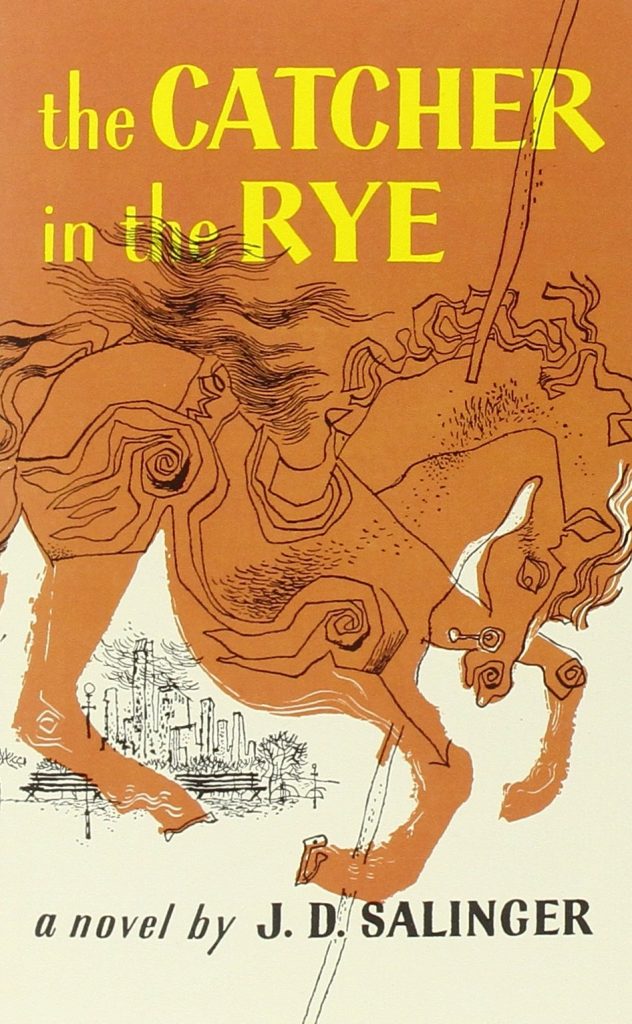Prior to this class, I had a very mundane definition of censorship: when authorities restrict access to a text. While it is not technically incorrect, it is far too simple. Censorship occurs at various levels in schools and in life without most people even realizing it. First, I would like to consider who is behind censorship.

In Belinda Louie’s article titled “Politics in Children’s Literature: Colliding Forces to Shape Young Minds,” she identifies the stakeholders of censorship, or the people who play the biggest role in determining what children read. Even before this class, I could predict that authors and district administrators were on the list; however, I was surprised that teachers were also considered censors. If anything, I thought my teachers exposed me to more books rather than limited my intake. When a teacher selects a book, they are saying that the required text is more important than a different book. Often, teachers present text that are in accordance with their own views or what will teach students to read critically. I never thought of this when my teacher selected The Catcher in the Rye, as opposed to a different story. Now, I realize just how relatable Holden Caulfield is compared to characters from other cultures. While most people tend to cling to what is comfortable, I think we should also read things that make us uncomfortable. This will make students well rounded, empathetic, and better equipped to face a world growing in diversity.
Wait, it’s not bad after all?
If you asked me if censorship was good or bad a month ago, I would have replied “bad” very confidently. Now, I realize it is much more complex. Louie also lists parents as stakeholders, saying that they promote books that coincide with their views. A parent’s objective is usually to keep their child safe and happy. But sometimes a parent’s definition of safe contradicts with the themes in a book. For example, the restriction of The Golden Compass by Halton Catholic School District was on the basis that the book is anti-church. Parent’s do not want their children to be exposed to something that would make them question their religious beliefs. For some people, this situation is about parents protecting something their family holds dear. For others, it is hiding the real world from children, an entire school of them. While the consequences of censorship are mostly negative, it can stem from a good place. Clearly, the argument is not one sided.
Please, make it stop
When someone is diagnosed with a disease, it is common to go through a period of denial. They can only be helped once they have accepted the reality of their condition. Similarly, the first step to curing censorship is acknowledging that you have been plagued by it. There are numerous treatment options, but there is no known cure. For starters, read a book! Especially, if it is one that has been challenged before. Tell your friends and family to read it too. By spreading the word about books that have been challenged, one can theoretically prevent them from being pulled off the shelves again. Perhaps you can encourage schools to bring a text back by popular demand. Awareness is the best weapon against censorship (an area I was lacking in prior to this course). Unfortunately, censorship will always be a part of life, especially due to the hierarchy of school systems and society. In the words of Nicole Moore, convener of the English Program at UNSW Canberra, “To be for or against censorship as such is to assume a freedom no-one has. Censorship is.”
Finished! … or not
Originally, I planned on ending this post with a new, concise definition of censorship. To be frank, I do not feel comfortable doing this anymore. I have decided to wait until we have progressed further into the course to see if my thoughts change. I guess you will have to wait a little longer for my official definition.
Works Cited
Louie, Belinda. “Politics in Children’s Literature: Colliding Forces to Shape Young Minds.” Shattering the Looking Glass: Challenge, Risk, and Controversy in Children’s Literature. Edited by Susan S. Lehr. Christopher-Gordon Publishers, 2008. pp. 3-13.
Moore, Nicole. “Censorship Is.” Australian Humanities Review 54, 2013. pp. 45-65.